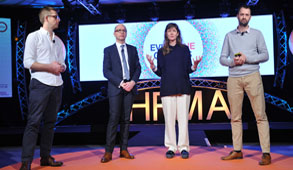HFMA 2017: LEAN institute announced
The move follows NHS Improvement-led work over the last two years in which five NHS trusts have worked with the Virginia Mason Institute in the US to improve quality and eliminate waste from their healthcare pathways.
Adam Sewell-Jones, NHS Improvement’s director of improvement, told the HFMA annual conference in London that the new consultancy would aim to support six trusts to adopt a Lean-based approach to service delivery in a partnership lasting three to five years.
He said that the work with the five trusts and the Virginia Mason Institute had really been about transforming the mindsets of leaders. He said the trusts all had high quality leaders. ‘But they are learning to lead in a different way,’ he said.
With eight different types of waste often identified in LEAN analysis, he said most managers could identify waste in their own services within each category. But staff, including porters, healthcare assistants and other clinicians, had the real insight on where waste was arising on a daily basis.
‘It is not a financial improvement programme,’ Mr Sewell-Jones said. ‘But we’ve seen some junior staff highlight opportunities that have taken £500,000 out of a particular pathway and improved quality – and staff are passionate about finding [and eliminating] waste.’
The new support would be at cost, but less than a trust would pay to a commercial provider – with Mr Sewell-Jones stating that the NHS should be self-sufficient in supporting itself.
He also launched a new initiative in conjunction with the HFMA and Future-Focused Finance to help finance staff develop improvement skills. Applications are now being sought from finance practitioners to join a Quality, Service Improvement and Redesign (QSIR) programme. Practitioners would attend with a clinical colleague with the programme involving five training days spread over five months. Applications need to be in by 15 January.
Mr Sewell-Jones addressed the conference as part of a series of short, ‘quick-fire’ sessions. Trainee GP Luke Kane (pictured left with HFMA president Mark Orchard) described his very different experiences volunteering in Sierra Leone as part of the UK response to the Ebola crisis and then taking part in a Channel 4 recreation of Captain Bligh’s famous post-mutiny 4,000 mile journey across the Pacific. He said that both experiences had underlined for him the absolute importance of the patient-doctor relationship.
However, he still believed that the NHS needed to embrace new technology alongside the traditional GP appointment. Paul Bate (pictured right), director of NHS services at Babylon Healthcare demonstrated how smart phones were already providing alternative ways to access healthcare. He said the virtual consultation app could work in existing GP practices, helping to triage out patients who can be supported without seeing a GP, or as part of a stand-alone primary care service.
Data scientist Maxine Mackintosh (pictured) also explained how the ‘digital noise’ created by social media and other virtual interactions could be used to predict future illnesses. Pattern mining could help to create digital finger prints for different conditions that may enable earlier interventions that lead to better outcomes for patients or help people avoid conditions altogether.
Related content
We are excited to bring you a fun packed Eastern Branch Conference in 2025 over three days.
This event is for those that will benefit from an overview of costing in the NHS or those new to costing and will cover why we cost and the processes.